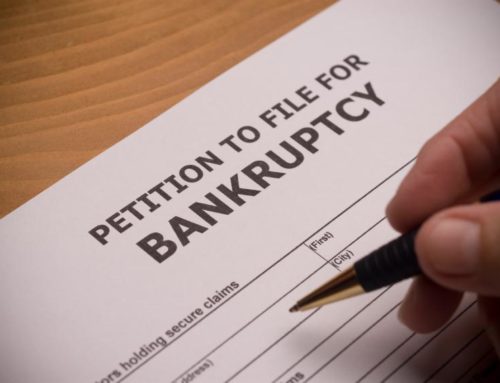Having to file for bankruptcy is nothing to be ashamed of. The current economic climate along with the pandemic has placed many Americans in dire financial straits. If your medical debt, credit card debt, and tax debt have become too unmanageable to pay off, bankruptcy filing may be the best option for you.
It’s your right as an American citizen to get bankruptcy protection if you become overwhelmed with debt. People usually file under Chapter 7 liquidation or Chapter 13 reorganization. In this article, we will be giving you a summary of Chapter 13 bankruptcy filings as well as how to become eligible for this chapter.
For any concerns with bankruptcy laws, get in touch with our experienced Wheeling bankruptcy attorneys today.
Chapter 13 Overview
The Benefits of a Chapter 13 Plan
 There are two common reasons why people file for Chapter 13 bankruptcy over Chapter 7.
There are two common reasons why people file for Chapter 13 bankruptcy over Chapter 7.
- The debtor did not qualify for Chapter 7 bankruptcy;
- They want to keep their nonexempt property.
Under a Chapter 7 bankruptcy, the trustee liquidates your assets to be sold for the benefit of your creditors. This is only available for those under a certain income level. A Chapter 13 bankruptcy does not have the same income requirements as Chapter 7. Instead, it lets you propose a 3-5 year repayment plan to pay off your debt, which allows you to do things such as:
- Save for your home from foreclosure;
- Protect your car from repossession
- Stop interest from your tax debts
- Catch up on tax debt, family support obligations (like alimony and child support), and other nondischargeable debt.
A Chapter 13 plan lets you catch up on your overdue payments for the period of your bankruptcy. Consider a Chapter 13 reorganization if you’ve already invested a lot into your property, such as your car or your house. It also lets you pay off your living expenses while still paying off the debt you owe.
However, if your goal is simply to discharge your debt for a fresh start, then Chapter 7 maybe your best option.
Of course, what we shared here works for the general population. However, everyone’s case is different. Talk to our experienced West Virginia bankruptcy lawyers to know what options you have available and what’s best for you.
What’s an Automatic Stay?
When you file for bankruptcy, the bankruptcy court places an order known as an automatic stay. This prevents your creditors from undergoing any collection efforts, whether it’s lawsuits or collection calls.
How Does the Payment Plan Work?
Several factors come into play when determining how much you have to pay monthly. These include:
- Priority debts
- Mortgage
- Other debt you want to pay off
- Disposable income
- Nonexempt property
Priority debts are obligations that you have to pay off. These include alimony, child support, and tax arrears. The debts make up the minimum calculation of your repayment plan. Your property and income are factors in the increase of the amount you have to pay every month.
Basically, all of your disposable income will be allocated for your monthly payment. If your income increases, you can expect your monthly payments to increase too. Once your repayment plan has been fully paid off, the remaining dischargeable debt will be eliminated.
Calculating your monthly payments can be confusing. Our Wheeling bankruptcy lawyers have years of experience with Chapter 13 repayment plans and can help you be confident with how much you’ll be paying. Call us now to schedule a free consultation!
How Your Income Affects your Plan
A high income does not prevent you from filing a Chapter 13 bankruptcy, but it can affect how long your plan will last.
If your income is greater than the state’s median income, then your plan will last for five years.
If your income is less than West Virginia’s median income, your plan only goes until three years.
A Chapter 13 bankruptcy has its upsides and downsides. There are many options available and the best one depends on your situation. If you want to know what works best for you, give our Wheeling bankruptcy law firm a call for a free consultation!
Qualifying for Chapter 13
Chapter 13 Means Test
The means test works to determine whether you have a steady enough income to make it through your repayment plan. Unlike in Chapter 7, there is no means test to prevent people with high income from a Chapter 13 filing. It could be the case that your income is so low that the court determines that it’s not feasible for you to file for Chapter 13 bankruptcy.
Chapter 13 Eligibility Requirements
Even if the means test does not exclude you for having a high income, there are still some other requirements for undergoing bankruptcy under this chapter:
- Only consumers can file under Chapter 13 (not businesses);
- Your unsecured debt cannot be more than $394,725.
- Your secured debt does not exceed $1,184,200.
- You can finish credit counseling sessions within 180 days before filing.
Our bankruptcy attorneys can help ensure that everything is in order when it comes time for you to file your Chapter 13 petition. Call us now for more information!
Final Thoughts
The pandemic has caused a stressful time for everyone. You may be facing a loss of income, a loss of a loved one, health problems for you and your family, as well as the stress of day-to-day life. If your debt feels overwhelming, our West Virginia lawyers at Thomas E. McIntire & Associates, L.C., can provide you with the assistance you need to become debt-free
Are you looking for high-quality legal guidance through a bankruptcy case? Are you seeking for a solution to your overwhelming debt? No matter your current financial situation, our Wheeling bankruptcy lawyer is wholeheartedly committed to helping you achieve long-term financial debt relief.
Debt relief can be just a phone call away! Contact our Wheeling bankruptcy lawyer to schedule a free consultation!





